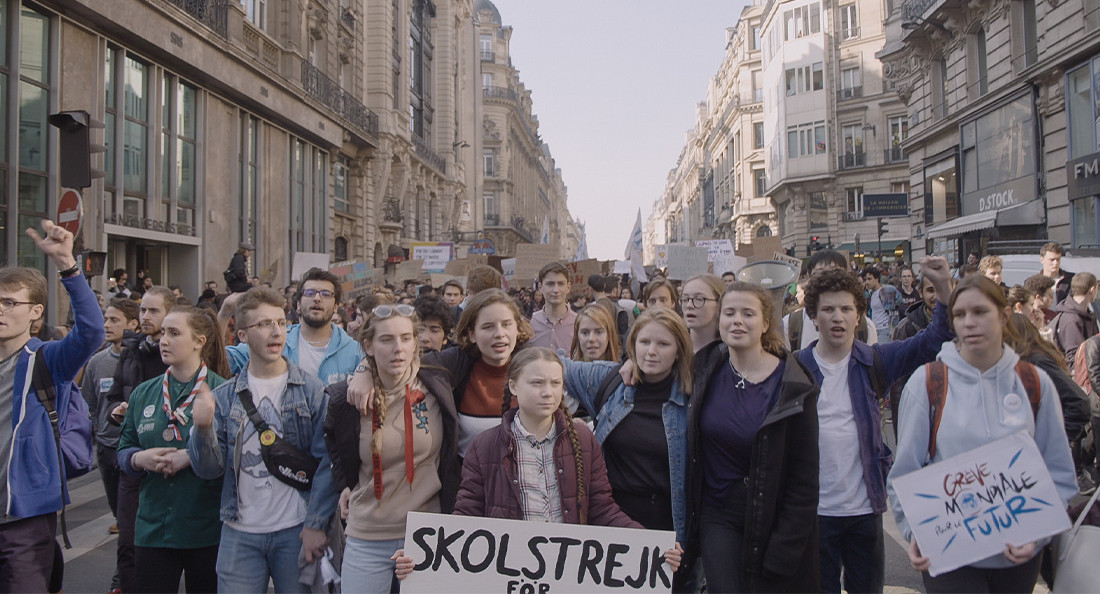Critipeg: I Am Greta
Coming to VOD on Nov. 13, ★★★★☆ 1/2
Director Nathan Grossman’s documentary I Am Greta chronicles Greta Thunberg’s life as a teenage climate justice activist, beginning from her one-person school strikes in August 2018 to her speech at the 2019 UN Climate Action Summit in New York.
At the forefront, this documentary has a high degree of emotionality. While alluding to the devastating impact of climate change and the fast-approaching crisis being laid at the feet of younger generations, the main focus is the emotional toll Thunberg endures in order to spread her message.
The documentary covers the impact Thunberg’s crusade has on the most important facets of her life: everything from family, schooling, living with Asperger’s and the media coverage (both positive and negative) of her efforts.
But this isn’t your typical, run-of-the-mill inspirational story. It is inspiring, but not because it’s jam-packed with excess amounts of glorification for Thunberg. The film adopts a modest, respectful, but mildly sombre approach in telling her story. After all, Thunberg doesn’t do what she does for the accolades, but to spread a critical message: time is running out.
The film covers Thunberg’s speeches at a variety of climate-change meetings and events, as well as the quieter moments in between. It’s Thunberg’s more personal, muted moments that serve as the backbone of the film.
The dips into her personal life are presented with an element of slowness. The audience sees Thunberg laugh, bicker and cry with her family through relatively long, almost continuous shots. The camera also lingers on moments where Thunberg does her behind-the-scenes activist work: scrutinizing the wording of her speeches or choosing outfits for events. In this way, the film is patient, accounting for every detail of her experience. As a result, the audience is shown the amount of thought, care and passion Thunberg pours into her work.
That said, the film’s slowness doesn’t drag. In fact, the documentary grips viewers’ attention and doesn’t release it until the film reaches its conclusion.
Still, this documentary might feel too slow for some. The lack of quick, sharp cuts, as well as an absence of sensational musical scores, present a challenge to the audience: put in the effort to pay attention to this film. However, considering Thunberg’s message, the choice of the film’s slower pacing was likely intentional in order to create this effect. Arguably, the choice is necessary.
Ultimately, the documentary points to the one message Thunberg has been repeating for years now: time is running out. The world has to act now. Considering Thunberg’s objective in all the work she does, there isn’t a better way to tell her story. It is for this reason that Nathan Grossman and the entire production team deserve praise for this project.
It’s easy to get complacent, or to ignore the rapidly declining state of the world, but this is why each and every person on this planet needs to put in the effort to pay attention. It’s long past time to wake up and act.
Published in Volume 75, Number 07 of The Uniter (October 29, 2020)








